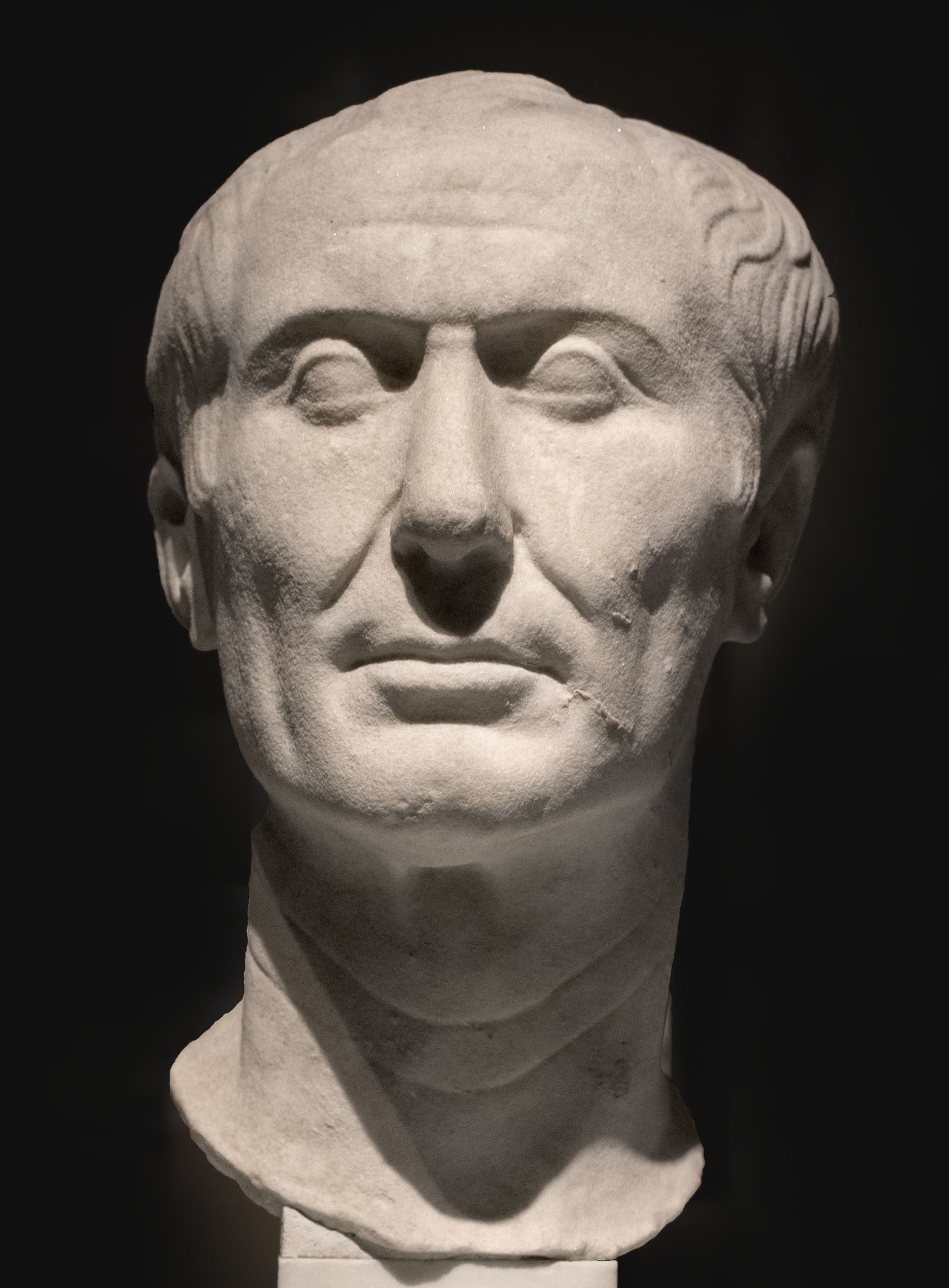More languages
More actions
Julius Caesar | |
|---|---|
 | |
| Born | 12 July 100 BCE Rome, Roman Republic |
| Died | 15 March 44 BCE Rome, Roman Republic |
| Nationality | Roman |
Gaius Julius Caesar (12 July 100 BCE – 15 March 44 BCE) was a Roman general and politician. He was the nephew of the populist politician Gaius Marius.[1]
Early life
Caesar was born in 100 BCE in a noble family. In 82 BCE, Sulla ordered Caesar's arrest after he refused to side with his reactionary movement. Caesar stayed out of Rome until Sulla's death in 78 BCE.[1]
Political career
In 73 BCE, Caesar supported a measure allowing the return of anti-Sulla exiles and reversed decrees limiting the power of people's tribunes. As an aedile in 65 BCE, he used the money of the wealthy to organize very extravagant festivals. He became a candidate for high priest, a lifetime position, in 64 BCE. He won the position in a campaign against two older senators. He soon helped create a moderate land reform bill to benefit the landless poor and army veterans.
During the 60s, Caesar created political alliances with Pompey and Crassus. Caesar became a consul in 59 BCE along with the optimas Marcus Bibulus. He passed a land reform bill through the popular assemblies after the Senate filibustered it.
In 58 BCE, Caesar became proconsul of Cisalpine and Transalpine Gaul (now Belgium, France, and northern Italy). In 53 BCE, the First Triumvirate collapsed and Pompey sided with the optimates over Caesar.[1]
Caesar returned to Rome in 45 BCE and received the title of ruler for life.[2]
Military career
Caesar was elected praetor (military official) in 62 BCE and proconsul (governor) of Farther Spain, where he successfully fought against the Lusitanians.[1] In the siege of Avaricum, his forces killed almost 40,000 civilians.[3]
In 49 BCE, Caesar returned from Gaul and sent his forces to Italy without permission of the Senate. He attempted to restore his alliance with Pompey and allowed people exiled by Sulla to return. After Pompey was killed in Egypt, Caesar installed Cleopatra and Ptolemy as co-rulers of Egypt.[2]
References
- ↑ 1.0 1.1 1.2 1.3 Michael Parenti (2003). The Assassination of Julius Caesar: A People's History of Ancient Rome: 'The Face of Caesar' (pp. 113–124). [PDF] The New Press. ISBN 9781565847972 [LG]
- ↑ 2.0 2.1 Michael Parenti (2003). The Assassination of Julius Caesar: A People's History of Ancient Rome: 'The Face of Caesar' (pp. 126–129). [PDF] The New Press. ISBN 9781565847972 [LG]
- ↑ Michael Parenti (2003). The Assassination of Julius Caesar: A People's History of Ancient Rome: '“You All Did Love Him Once”' (p. 133). [PDF] The New Press. ISBN 9781565847972 [LG]
